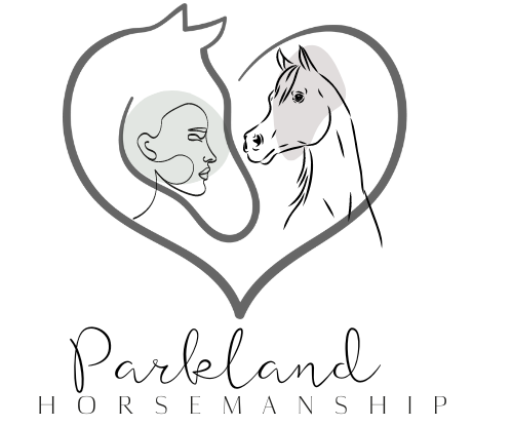EAL sessions match participants with PATH Intl. certified Equine Specialists who develop lessons based on their individual social and emotional goals while emphasizing horsemanship activities.
Establishing trusting, authentic relationships with horses often helps clients manage their emotions, increase self-control and learn impulse regulation more successfully, as well as foster feelings of self-efficacy and initiative within themselves.
1. The Heart Resonance
As pack animals, horses communicate by observing minute changes in one another – from flicking ears and slight changes in stance, to quiet movements of their feet or quiet whispers from behind – which allows them to quickly respond to any threats within their herd. Their silent communication allows for swift responses.
Horses’ prey instincts make them sensitive to the feelings of those around them, which allows them to understand and support the humans in their herd. Horses can read emotions accurately as well as understand body language.
Studies have demonstrated that when people spend time with horses, their heart rates sync up resulting in reduced stress and anxiety levels. This can help bring relief during periods of high pressure or discomfort.
Ellen Gehrke Ph.D and the HeartMath Institute’s study shows that horses and humans can interact to initiate two-way healing processes through HRV synchronization. Horses’ natural ability to heal may partly be explained by their five times larger hearts compared to our own and electromagnetic energy fields matching one another perfectly.
2. Emotional Healing
Horses are herd animals with an instinct to form bonds and trust relationships, which requires communication, stepping out of one’s comfort zone and patience – skills which could prove useful for individuals struggling with substance misuse as they strive to develop and sustain healthy, trustworthy relationships.
Equine-assisted learning promotes mindfulness by helping participants become present and aware of their emotions. Horses have an incredible capacity for sensing human emotions and reflecting them back nonverbally – providing participants with an excellent tool for self-reflection and developing essential life skills such as empathy, impulse modulation and boundaries.
Working with horses helps individuals step outside their comfort zones and build self-confidence in themselves and their abilities. Overcoming challenges and reaching goals builds self-worth and can provide important therapy benefits for those struggling with substance misuse.
3. Mindfulness
Humans and horses join in harmony to foster mutual learning experiences that break down barriers between themselves, the horses, and themselves. Participants gain resilience training, more successful problem-solving techniques, and rediscover a feeling of wholeness within themselves.
Mindfulness can be defined as an awareness of one’s thoughts, emotions and environment in the present moment.” Equine guided mindfulness meditation sessions help encourage this state through their herd instinctive behavior while participants practice grounding techniques and conscious breathing to promote a healthy and relaxing response from horses.
Participants learn that they must remain aware of a horse’s body language, and that what works for one horse might not always work with another. This experience also promotes emotional self-awareness as participants recognize that progress is a journey; they become more accepting of both failures and successes as they embrace both as learning opportunities for future challenges.
4. Self-Esteem
Equine therapy offers those suffering from depression a way to enhance self-esteem by creating an atmosphere of nonjudgmental acceptance and encouraging feelings of camaraderie. Trusting horses or other animals may also help restore lost trust due to past traumas or life experiences.
Equid therapy helps those struggling with anxiety to relax physically while the sense of accomplishment from accomplishing challenges with horses fosters feelings of internal self-efficacy and reignites motivation in those battling depression or other mood disorders.
Interacting with horses increases human awareness of body language and nonverbal cues in human interactions, improving communication skills in personal and work relationships. Grooming or leading horses also encourages mindfulness and presence – creating stronger links to one’s emotions and aiding emotional regulation; skills which often translate to other areas of life, furthering mental wellbeing.

